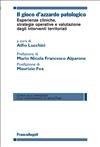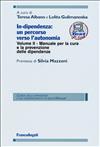
Esperienze cliniche, strategie operative e valutazione degli interventi territoriali
Il volume affronta il tema del gioco d’azzardo patologico sotto vari aspetti: vengono aggiornate le conoscenze scientifiche sulla natura del gioco e le caratteristiche che lo possono rendere una patologia; vengono proposti modelli di intervento di sensibilizzazione, prevenzione, formazione che vedono nel territorio la risorsa e il luogo di azione; vengono descritte esperienze e riflessioni di presa in carico e cura delle persone malate di GAP curate da noti professionisti italiani e stranieri.
cod. 231.10



